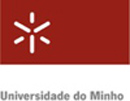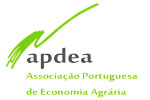Abstracts
Abstract Submission Deadline: April 18, 2013Results of the review process will be communicated to authors by approximately: April 30, 2013
The submission of abstracts and papers should be carried out in the following platform:
http://events.digitalpapers.org/2
Guidelines for Abstracts
Abstracts are accepted in the following languages: Portuguese, English or Spanish. The papers can be presented in one of these three languages and parallel sessions will be organized by language to facilitate the participation of people who do not speak Portuguese.
The text should not exceed 400 words.
Theme
PLACE-BASED POLICIES AND ECONOMIC RECOVERY
This year's congress will count on a group of Special Sessions organized by several members of the Scientific Committee of the Congress on specific themes of regional science. The papers presented in these Special Sessions result from invitations addressed by the organizers and are not therefore open to submissions.
Special Sessions
-
IC - Innovation Networks in Portugal: Flow Intensity, Knowledge Spillovers and Firm Performances (Innovaflow Conference)
Maria Teresa Noronha (U Algarve)
-
SS1 - Tourism and Regional Development
José Cadima Ribeiro (U Minho)
-
SS2 - Public Finances and Regional Development
José Costa (U Porto)
-
SS3 - The Regional Development Policies in Portugal in the Framework of Cohesion Policy
Rui Nuno Baleiras (U Minho)
-
SS4 - Models of Regional Analysis - Input-Output Applications
Ana Lúcia Sargento (IP Leiria)
-
SS5 - Governance and Regional Development
Adriano Pimpão (U Algrave)
-
SS6 - Major Events and Regional Development
Paula Cristina Remoaldo (U Minho)
-
SS7 - Urban World in 2050
Eduardo Anselmo Castro (U Aveiro)
-
SS8 - Territorial Cohesion in the EU
Regina Salvador (U Nova)
-
SS9 - Regional Innovation Systems and Regional Development
Mário Rui Silva (U Porto)
-
SS10 - Air Transport and Regional Development
Jorge Silva (U Beira Interior)
-
SS11 - Social Spaces: A New Literature of Regional Economy
Paulo Mourão (U Minho)
-
SS12 - The Financing of Transport Infrastructure and its Framework in Regional Development
Rosário Macário (IST-UTL)
-
SS13 - Education, Labour Market and Regional Development
João Carlos Cerejeira (U Minho)
-
SS14 - Markets of Housing and Urban Development
João Marques (U Aveiro)
-
SS15 - Agricultural Policies: How to Integrate Sectoral and Territorial Objectives
Lívia Madureira (UTAD)
-
SS16 - Located Food Systems: New Dynamics and Challenges
Artur Cristovão (UTAD)
-
SS17 - Networks and Regional Development
Anabela Ribeiro (U Coimbra)
-
SS18 - Public Policies and Regional Development
Paulo Neto (U Évora)
-
SS19 - Entrepreneurship and Regional Development
Luísa Carvalho (IP Setúbal) & Pedro Dominguinhos (IP Setúbal) -
SS20 - Renaissance of Southern European Regions
Maria Conceição Rego (U Évora)
Regular Sessions
- RS1 - Bartolomeu Award*
- RS2 - Urban and Regional Economics
- RS3 - Regional and Local Development Policies
- RS4 - Financing of Economic Growth
- RS5 - Spatial Dimensions of the Crisis of the State
- RS6 - Regional and Local Public Finance
- RS7 - Sectoral Policies and Regional Dynamics
- RS8 - Infrastructure and Regional Development
- RS9 - Labour Markets and Development
- RS10 - Tourism and Sustainable Development
- RS11 - Innovation and Territory
- RS12 - Rural Development and Agrarian Economy
- RS13 - Modelling in Regional Economy
- RS14 - Spatial Econometrics
- RS15 - Regional and Urban Planning
- RS16 - Economics of Environmental and Natural Resources
*The Bartholomew award is awarded to scientists aged less than 33 years (including co-authors) on the 15th of July each year, presenting a paper in a session of APDR Congress. The prize is awarded by a jury of appreciation by the Director of the Portuguese Jou rnal of Regional Studies and two scientists appointed by him. The assessment criteria are: conceptual coherence, relevance to regional science and its impact on regional development.








